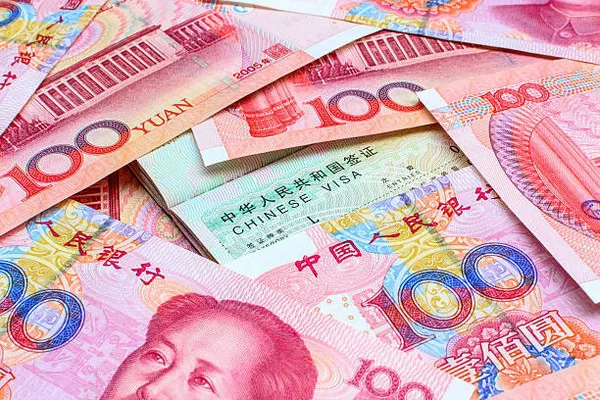Inflation is a crucial economic indicator affecting various facets of a nation’s economy, including its currency valuation. In China, where the yuan is closely monitored both domestically and internationally, understanding the interplay between inflation and the strength of the yuan is of paramount importance. This article delves into the complex relationship between inflation and the yuan’s strength, exploring how inflationary pressures can influence the currency’s valuation.
Inflationary Pressures and Currency Valuation:
Inflation, defined as the rate at which the general level of prices for goods and services is rising, has a profound impact on a country’s currency valuation. When inflation rises, the purchasing power of a currency diminishes, leading to a decrease in its value relative to other currencies. In the context of China, inflationary pressures can exert downward pressure on the yuan, making it weaker against other major currencies.
One of the primary channels through which inflation affects currency valuation is through its impact on interest rates. In response to rising inflation, central banks often implement monetary tightening measures by raising interest rates to curb inflationary pressures. Higher interest rates make domestic assets more attractive to investors, resulting in an inflow of capital and an appreciation of the currency. Conversely, lower interest rates, often used to stimulate economic activity during periods of low inflation, can lead to a depreciation of the currency.
The Relationship Between Inflation and the Yuan:
In the case of China, the relationship between inflation and the yuan’s strength is multifaceted. Historically, China has experienced periods of high inflation, driven by factors such as rapid economic growth, expansionary fiscal policies, and supply-side constraints. During these periods, the People’s Bank of China (PBOC), the country’s central bank, has intervened to maintain price stability and support the value of the yuan.
One mechanism through which the PBOC manages inflation is through its control over the money supply. By adjusting monetary policy tools such as reserve requirements and open market operations, the central bank can influence the availability of credit in the economy, thereby affecting inflationary pressures. Additionally, the PBOC can directly intervene in the foreign exchange market to stabilize the yuan’s exchange rate against a basket of currencies.
However, despite the PBOC’s efforts to manage inflation, external factors such as global commodity prices and exchange rate movements can also impact domestic price levels. For instance, a sharp increase in the price of commodities such as oil or food imports can contribute to inflationary pressures, even if domestic demand remains relatively stable. In such cases, the PBOC may face challenges in containing inflation while simultaneously maintaining the stability of the yuan.
Implications for the Yuan’s Strength:
The relationship between inflation and the yuan’s strength is not always straightforward and can be influenced by a myriad of factors. While high inflation typically exerts downward pressure on the currency, other economic fundamentals and policy measures can mitigate or exacerbate this effect.
For example, China’s robust economic growth, large foreign exchange reserves, and trade surpluses have historically supported the yuan’s strength, even during periods of elevated inflation. Additionally, the Chinese government’s capital controls and restrictions on capital outflows have limited the ability of investors to speculate against the yuan, helping to maintain exchange rate stability.
Furthermore, China’s status as a major exporter and its significant holdings of foreign currency-denominated assets provide a strong foundation for the yuan’s internationalization efforts. As the Chinese economy continues to expand and integrate with global markets, the demand for yuan-denominated assets may increase, bolstering the currency’s value despite inflationary pressures.
Policy Responses and Outlook:
In light of the complex relationship between inflation and the yuan’s strength, policymakers in China face the challenge of balancing competing objectives, including price stability, exchange rate management, and economic growth. Going forward, the PBOC is likely to continue employing a mix of monetary policy tools and exchange rate interventions to navigate the dynamics of inflation and currency valuation.
Additionally, structural reforms aimed at addressing long-term imbalances in the Chinese economy, such as reducing reliance on exports and promoting domestic consumption, could help mitigate the impact of inflation on the yuan. Moreover, efforts to liberalize China’s financial markets and increase the yuan’s convertibility could enhance its attractiveness as an international reserve currency, further supporting its strength in the long run.
Conclusion:
Inflation plays a significant role in shaping the strength of the yuan, China’s currency. While high inflationary pressures can exert downward pressure on the yuan, a variety of factors, including economic fundamentals, policy responses, and external developments, can influence its valuation. As China continues to navigate the complexities of its evolving economy and global financial markets, policymakers will need to adopt a prudent approach to managing inflation while supporting the stability and internationalization of the yuan.


